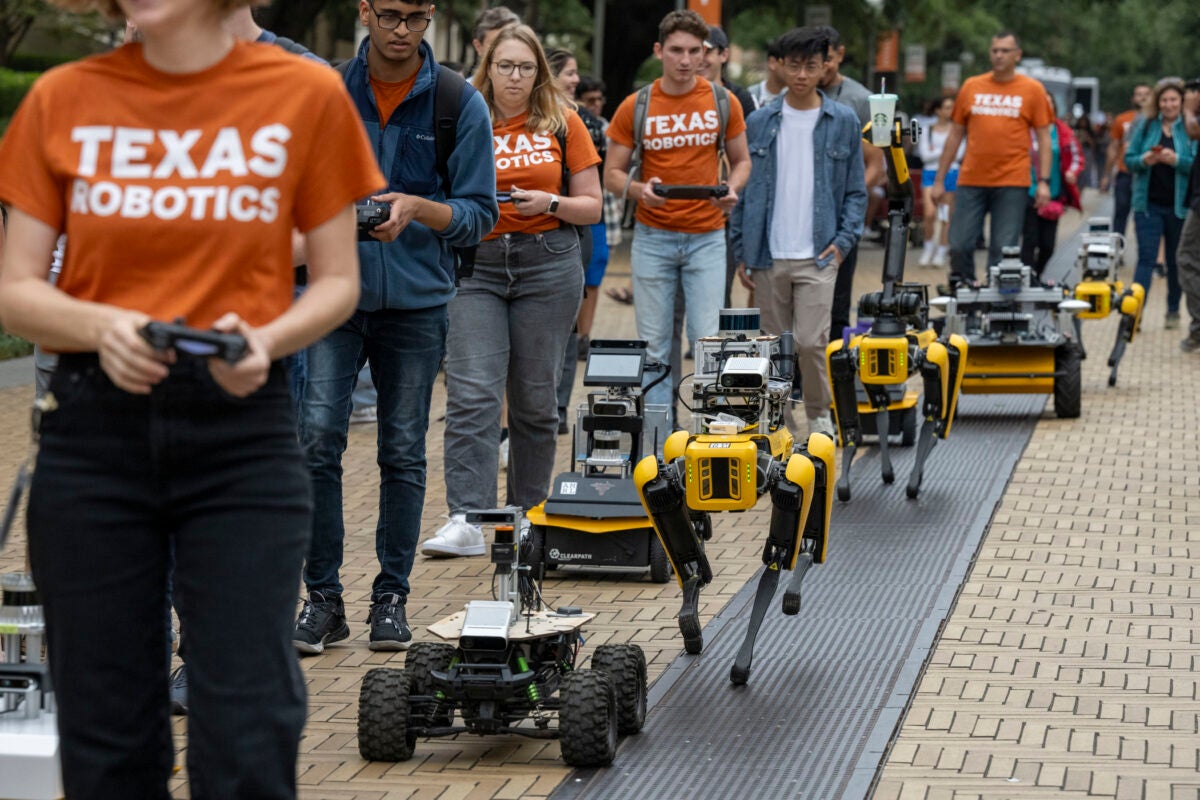What is AI, Anyway?
What do we even mean when we say “artificial intelligence”? And how do we make sure it’s safe and useful? Here, with all the answers, is AI and robotics expert Peter Stone.

Photo montage generated with Adobe Firefly, a generative AI tool.
For our first episode of AI for the Rest of Us, we’re starting with the big picture. What is (or isn’t) “artificial intelligence”? How can we be sure AI is safe and beneficial for everyone? And what is the best way of thinking about working with AI right now, no matter how we use it?
Here with all the answers is Peter Stone. He’s a professor of computer science at UT Austin, director of Texas Robotics, the executive director of Sony AI America and a key member in the 100 Year Study on AI. He’s worked for many years on applications of AI in robotics: for example, soccer-playing robots, self-driving cars and home helper robots. He’s also part of UT Austin’s Good Systems initiative, which is focused on the ethics of AI.
Read the full transcript
Dig Deeper
An open letter signed by tech leaders, researchers proposes delaying AI development, NPR (interview with Peter Stone)
AI’s Inflection Point, Texas Scientist (an overview of AI-related developments at UT Austin)
Experts Forecast the Changes Artificial Intelligence Could Bring by 2030 (About the first AI100 study, which Peter Stone chaired)
Computing Machinery and Intelligence (Alan Turing’s 1950 article describing the Imitation Game, a test to determine if a machine has human intelligence)
Good Systems (UT Austin’s grand challenge focused on designing AI systems that benefit society)
Year of AI – News & Resources (News from an initiative showcasing UT Austin’s commitment to developing innovations and growing leaders to navigate the ever-evolving landscape brought about by AI.)
Episode Credits
Our co-hosts are Marc Airhart, science writer and podcaster in the College of Natural Sciences and Casey Boyle, associate professor of rhetoric and director of UT’s Digital Writing & Research Lab.
Executive producers are Christine Sinatra and Dan Oppenheimer.
Sound design and audio editing by Robert Scaramuccia. Theme music is by Aiolos Rue. Interviews are recorded at the Liberal Arts ITS recording studio.
Cover image for this episode generated with Adobe Firefly, a generative AI tool.



